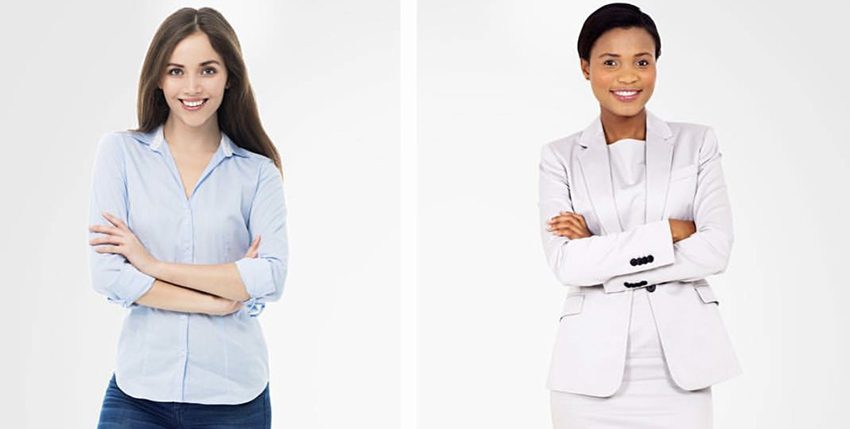
It seems like the “fashion rules” of professional attire are becoming increasingly lax during recent years. We have rounded up the experts to give us their two cents about interview fashion and how to best represent yourself during this crucial time when a business suit does not always seem like the obvious answer.
Meet our expert panel: Linda Allen, the editor/owner of Ms. Career Girl, Lauren McGoodwin, Founder & CEO of Career Contessa, and Julia Erickson, Career Coach at My Right Fit Job and Amazon Best-selling Author. Can’t wait to hear what they have to say? Neither can we!
Recruit: How can you dress professionally in any type of work atmosphere since most offices do not require you to wear a suit anymore?
Linda Allen: Even on a Casual Friday, you never have to match the lowest common denominator. Let’s be real. Most of our professional life is spent trying to move up the ladder. Whose attention do you want? The boss or the dressed-down employees? Dress the part you want to attain.
Lauren McGoodwin: My go-to is dark denim or even black slacks with a blazer. Blazers are easy to throw on or keep at your desk when you need a more professional edge. Dark denim looks professional without being overly formal with a suit.
Julia Erickson: Both women and men can dress professionally while being in sync with modern office norms. Professional means showing respect for your work, your colleagues, your clients, and your workplace. It means dressing up more than you do on weekends to hang out. Professional dress is about making a positive impression on other people, who will get at least these messages from what you wear:
1) You care about how you look;
2) You take your work seriously; and
3) You respect your clients and the people you work with, enough to put time, effort and money into your look.
Pay attention to the norms of your industry, and when in doubt, ask someone who’s been around for a while.
R: Do you still wear a suit on an interview? If not, how can you be presentable and professional without it?
LA: I would always wear a formal suit to a high-level interview. But if you’re applying for an entry level job, that may not either work or be a good idea. Make your interview wardrobe match the job you’re applying for. Help them see you actually looking like you would when you’ll be doing the job.
LG: It depends on the company and their culture. Always research the company ahead of time to see if they are more casual or formal, however, my rule of thumb is to always err on the side of being more dressed since it is an interview. For a casual tech company, I’d wear nice jeans, a blazer, and nice looking flats. For a financial company with a casual edge, I’d wear black slacks and nice blouse.
JE: Wearing a suit to an interview is a mark of respect for the people you will be meeting. It shows that you appreciate the opportunity to present yourself as a candidate. Ties are no longer required, except in industries like banking at the higher levels or when dealing with high-level clients. As a rule of thumb, wear an outfit to an interview that’s dressier than you would normally wear to work.
R: What do you wear for a video interview, even if you’re in the comfort of your own home? What is appropriate?
LA: There’s no difference. Whether you’re live or on camera, you should be color-balanced and tailored appropriately. And if you’re setting up your own video interview, you’ve got to think beyond just the choice of clothes. Get the lighting, camera angle, and background right.
In summary, yeah we all like to get casual. But it you want the top job, make that level of dress, and behavior, your standard.
LG: I think one of the keys to confidence is looking/feeling good in what you’re wearing so, I’d treat my phone interview outfit just like an in-person interview. Set up your computer with headphones in a place with a nice/ not distracting background.
JE: For video interviews, wear what you would wear to an in-person interview. You want to be taken seriously so take yourself seriously.
When you’re at home, you can get a little sloppy. Dressing up puts you in the frame of mind of work, and it will give you confidence that you are a professional who is well able to do the job for which you’re interviewing.
